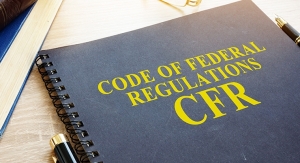By Joerg Gruenwald, analyze & realize ag06.03.19
Everyone is probably aware of the European Nutrition and Health Claims Regulation (EC) 1927/2006 and how only authorized health claims are permitted on food product labels.
These authorized claims are specific health claims linked to certain nutrients—unless they have been authorized for the entire product—and they usually are worded along the lines of “supports the maintenance of [physiological function],” unless they are risk-reduction claims, in which case the wording is a little different. They also come with conditions of use, usually with regard to the daily uptake amount of the respective nutrient.
Most food business operators are also aware that these authorized health claims need to either be drawn from a Union list of health claims, or they need to be authorized for a product following a health claim application.
‘Non-Specific’
Less well-known is the matter of non-specific health claims. These are not—and cannot be—authorized health claims. They can be literally anything, from product name to health-related marketing slogan, and even illustration. An image of a brain on the product label is construed by regulators to be a non-specific (but probably cognition-related) health claim. The word “bone” in the product name is a non-specific but obviously bone-related health claim. Speaking of “vitality” or “energy” in the product description also means using a non-specific health claim.
Some of these non-specific health claims such as “Hustenpastille” (cough lozenge) in the product name are termed “generic descriptors” and have, as such, recently received a derogation from the NHCR. On Feb. 28, 2019, the EU Commission adopted Regulation (EU) 2019/343, which provides derogations from Article 1(3) of the HHCR. In it, various traditional generic descriptors have been ruled to be exempt from the NHCR, even though they seem to constitute non-specific health claims and should therefore be accompanied by a specific health claim, as per the above-mentioned article of the NHCR. The full list of derogations is available in the Annex of the Regulation.
According to the NHCR, non-specific health claims are OK to use as long as they are either accepted generic descriptors or accompanied by a specific health claim. What the regulation doesn’t say is what type of specific claim is required.
Does Anything Go?
Food business operators have, until now, interpreted this as meaning that anything goes. A picture of a brain on the product label, followed by a specific health claim relating to prevention of fatigue due to a vitamin, should satisfy requirements. And until now—the regulation stating nothing to the contrary—this has been commonly accepted practice.
On Oct. 8 2018, a court decision in Magdeburg, Germany, has now seemingly put this practice into question. A food supplement product made a non-specific health claim in its product name (relating to joint health) and followed up this non-specific health claim with specific claims regarding bone and connective tissue health. The manufacturer argued that the legal environment did not require a relationship between non-specific and specific health claim. Also, while joint health claims are not approved, joints cannot function without bones and connective tissue, so there was a relationship between the non-specific joint health claim and the specific authorized health claims due to vitamins and minerals contained in the product. This implied a relationship between non-specific and specific health claim even though none was legally required.
The court held that the name of the product containing the word “joint” constituted a non-specific advantage for the product that could not be upheld by the ingredients, whose authorized specific health claims did not include joint health. Merely supporting the health of the joint components did not justify a joint health claim, even a non-specific one. Therefore, the name of the product was not permitted.
The reasoning behind this is that all label statements, first and foremost, are aimed toward not misleading the consumer. Making a joint health claim, even a non-specific one, that cannot be upheld by the health claims that are authorized for the product ingredients, misleads the consumer to believing the product will indeed be suitable for joint health (and not, like in the present case, just for bones and connective tissue).
Setting Legal Precedent
This court decision is interesting because it may set a precedent for similar cases. Currently, it is not clear whether this was an isolated case, or whether more decisions along these lines
will follow.
It also shows that, even more than a decade after the NHCR was drawn up, legal fine-tuning is still taking place, and not everything that seems obvious or even common practice will remain so in perpetuity. Food business operators wishing to avoid surprises such as this should collaborate with experienced consultancies like analyze & realize GmbH.
Joerg Gruenwald
analyze & realize ag
Dr. Joerg Gruenwald is co-founder of analyze & realize GmbH, a specialized business consulting company and CRO in the fields of nutraceuticals, dietary supplements, herbals and functional food, and author of the PDR for Herbal Medicines. He can be reached at analyze & realize GmbH, Waldseeweg 6, 13467 Berlin, Germany; +49-30-40008100; E-mail: jgruenwald@a-r.com;
Website: www.analyze-realize.com.
These authorized claims are specific health claims linked to certain nutrients—unless they have been authorized for the entire product—and they usually are worded along the lines of “supports the maintenance of [physiological function],” unless they are risk-reduction claims, in which case the wording is a little different. They also come with conditions of use, usually with regard to the daily uptake amount of the respective nutrient.
Most food business operators are also aware that these authorized health claims need to either be drawn from a Union list of health claims, or they need to be authorized for a product following a health claim application.
‘Non-Specific’
Less well-known is the matter of non-specific health claims. These are not—and cannot be—authorized health claims. They can be literally anything, from product name to health-related marketing slogan, and even illustration. An image of a brain on the product label is construed by regulators to be a non-specific (but probably cognition-related) health claim. The word “bone” in the product name is a non-specific but obviously bone-related health claim. Speaking of “vitality” or “energy” in the product description also means using a non-specific health claim.
Some of these non-specific health claims such as “Hustenpastille” (cough lozenge) in the product name are termed “generic descriptors” and have, as such, recently received a derogation from the NHCR. On Feb. 28, 2019, the EU Commission adopted Regulation (EU) 2019/343, which provides derogations from Article 1(3) of the HHCR. In it, various traditional generic descriptors have been ruled to be exempt from the NHCR, even though they seem to constitute non-specific health claims and should therefore be accompanied by a specific health claim, as per the above-mentioned article of the NHCR. The full list of derogations is available in the Annex of the Regulation.
According to the NHCR, non-specific health claims are OK to use as long as they are either accepted generic descriptors or accompanied by a specific health claim. What the regulation doesn’t say is what type of specific claim is required.
Does Anything Go?
Food business operators have, until now, interpreted this as meaning that anything goes. A picture of a brain on the product label, followed by a specific health claim relating to prevention of fatigue due to a vitamin, should satisfy requirements. And until now—the regulation stating nothing to the contrary—this has been commonly accepted practice.
On Oct. 8 2018, a court decision in Magdeburg, Germany, has now seemingly put this practice into question. A food supplement product made a non-specific health claim in its product name (relating to joint health) and followed up this non-specific health claim with specific claims regarding bone and connective tissue health. The manufacturer argued that the legal environment did not require a relationship between non-specific and specific health claim. Also, while joint health claims are not approved, joints cannot function without bones and connective tissue, so there was a relationship between the non-specific joint health claim and the specific authorized health claims due to vitamins and minerals contained in the product. This implied a relationship between non-specific and specific health claim even though none was legally required.
The court held that the name of the product containing the word “joint” constituted a non-specific advantage for the product that could not be upheld by the ingredients, whose authorized specific health claims did not include joint health. Merely supporting the health of the joint components did not justify a joint health claim, even a non-specific one. Therefore, the name of the product was not permitted.
The reasoning behind this is that all label statements, first and foremost, are aimed toward not misleading the consumer. Making a joint health claim, even a non-specific one, that cannot be upheld by the health claims that are authorized for the product ingredients, misleads the consumer to believing the product will indeed be suitable for joint health (and not, like in the present case, just for bones and connective tissue).
Setting Legal Precedent
This court decision is interesting because it may set a precedent for similar cases. Currently, it is not clear whether this was an isolated case, or whether more decisions along these lines
will follow.
It also shows that, even more than a decade after the NHCR was drawn up, legal fine-tuning is still taking place, and not everything that seems obvious or even common practice will remain so in perpetuity. Food business operators wishing to avoid surprises such as this should collaborate with experienced consultancies like analyze & realize GmbH.
Joerg Gruenwald
analyze & realize ag
Dr. Joerg Gruenwald is co-founder of analyze & realize GmbH, a specialized business consulting company and CRO in the fields of nutraceuticals, dietary supplements, herbals and functional food, and author of the PDR for Herbal Medicines. He can be reached at analyze & realize GmbH, Waldseeweg 6, 13467 Berlin, Germany; +49-30-40008100; E-mail: jgruenwald@a-r.com;
Website: www.analyze-realize.com.


























